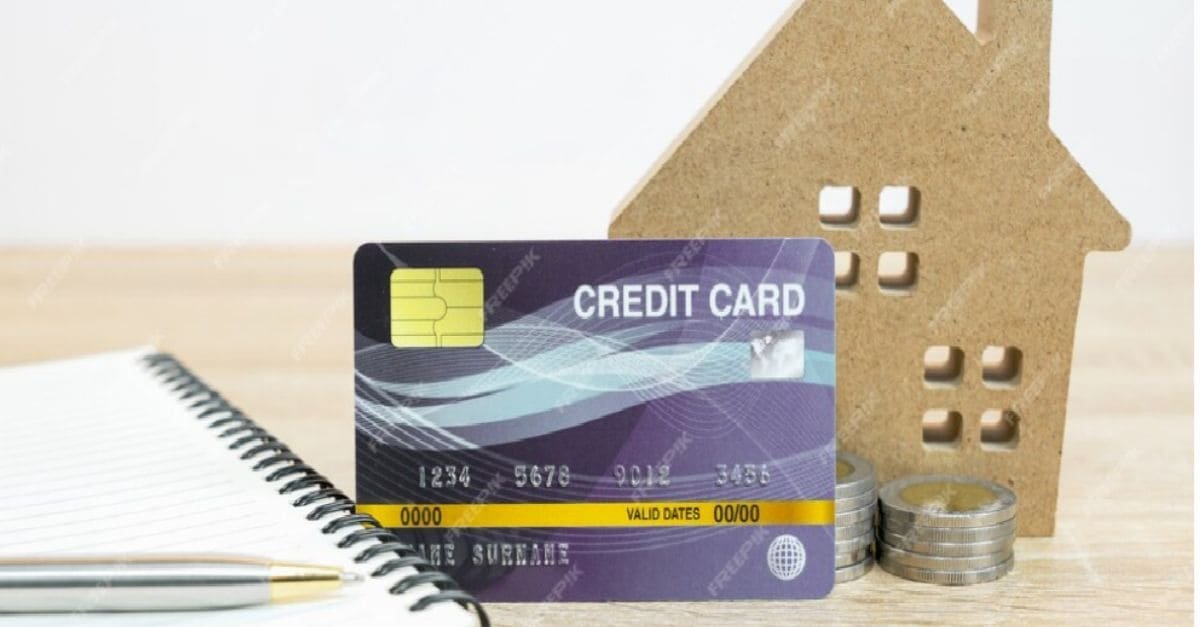
Yes, a credit card company can lien on your house. Living with debt is a common experience for countless Americans. While some individuals can keep up with unavoidable debts, like mortgages or car payments, managing credit card debt can be much more challenging. With high interest rates and ever-increasing balances, paying off credit card debt can often seem insurmountable. This has left many facing the frightening prospect of losing their assets to credit card company liens, including their homes.
If you struggle with credit card debt, you may wonder if your house is at risk and what steps you can take to safeguard yourself. In this article, we’ll explore the possibility of credit card companies taking your home for unpaid debts and discuss some strategies you can use to protect your valuable assets. So, continue reading to learn more about managing your credit card debt and protecting your financial future.
Table of Contents
What is a lien?
A lien is a legal claim that a creditor has over a property as security for a debt owed by the property owner. It gives the creditor the right to take possession of the property and sell it to recover the outstanding debt. Liens can be placed on various properties, including real estate, vehicles, and personal belongings.
How does a credit card company place a lien?
To understand how a credit card company can place a lien on your house, it’s vital to grasp the concept of liens and how they work. In the case of credit card debt, a lien on your house would mean that the credit card company has a legal right to claim a portion of the proceeds.
However, it’s essential to note that credit card companies can only directly place a lien on your house after obtaining a judgment against you. This means they must sue you in court and win the case before taking further action. The process of obtaining a judgment and pursuing a lien on your property is typically complex and may involve several legal steps.
Understanding the basics of credit card company liens and how they work is crucial in comprehending the potential implications of falling behind on credit card payments and the steps credit card companies can take to collect their debts.
Factors That Determine if A Credit Card Company Can Place A Lien
While credit card companies generally cannot directly place a lien on your house, they do have legal avenues to pursue if you fail to repay your debts. In most cases, credit card companies will first attempt to collect the outstanding balance through other means, such as contacting you directly, working with collection agencies, or negotiating a repayment plan.
However, if these attempts are unsuccessful and your debt becomes severely delinquent, the credit card company may choose to take legal action against you. This could involve filing a lawsuit to obtain a judgment, allowing them to pursue a lien on your property.
It’s important to note that the laws regarding liens and debt collection vary depending on your jurisdiction. The specific rules and regulations governing credit card debt and property liens may differ from state to state or country to country. Therefore, it’s crucial to consult local laws or seek legal advice to understand your rights and obligations in your specific situation.
Steps Credit Card Companies Take Before Placing A Lien
Several factors can influence whether a credit card company can place a lien on your house. These factors may vary depending on the laws of your jurisdiction and the specific circumstances of your case. Here are some common factors that can impact the possibility of a credit card company pursuing a lien on your property:
- The Severity of Delinquency: The severity of your delinquency, including the time your debt has remained unpaid, can significantly determine whether a credit card company will pursue legal action against you.
- Debt Amount: The debt owed to the credit card company can also be a factor. Credit card companies may sometimes be more likely to pursue legal action for higher debt amounts.
- Available Assets: Credit card companies may consider the value of your assets, including your home when deciding whether to pursue a lien. If you have significant equity in your property, they may likely seek a lien.
- Jurisdictional Laws: The laws of your jurisdiction can heavily influence the ability of a credit card company to place a lien on your house. These laws may dictate the specific requirements and procedures to be followed before a lien can be pursued.
It’s important to remember that these factors are not definitive, and the outcome of each case can vary depending on the circumstances. Consulting with a legal professional can provide personalized advice based on your situation and local laws.
Legal Actions Credit Card Companies Can Take to Collect Debt
Before a credit card company can place a lien on your house, they must follow several legal steps. These steps may vary depending on the jurisdiction and the specific laws governing debt collection and property liens. Here are some common steps credit card companies may take before pursuing a lien:
- Demand for Payment: Credit card companies usually send you multiple notices and demand letters requesting payment before considering legal action. These notices serve as a warning and an opportunity for you to address the debt before further action is taken.
- Lawsuit and Judgment: If the demand for payment is unsuccessful, the credit card company may choose to file a lawsuit against you. This legal action will involve presenting their case to a court and obtaining a judgment against you. The judgment verifies that you owe the debt and gives the credit card company the legal right to collect it.
- Execution of Judgment: Once the credit card company has obtained a judgment, it can pursue various methods to collect the outstanding debt. This may include garnishing your wages, freezing your bank accounts, or potentially placing a lien on your property.
It’s worth noting that each step in this process requires adherence to specific legal procedures and may involve court hearings or negotiations. It’s essential to respond promptly and seek legal advice if you receive any legal notices or are served with a lawsuit.
How to Prevent A Credit Card Company from Placing a Lien
When credit card companies cannot collect outstanding debts voluntarily, they may resort to legal actions to recover the money owed. These legal actions can vary depending on the jurisdiction and specific debt collection laws. Here are some familiar legal actions credit card companies may take to collect debt:
- Lawsuits: Credit card companies can file lawsuits against you to obtain a judgment and enforce the collection of the debt. If successful, the court may order you to pay the debt, potentially including interest, penalties, and legal fees.
- Wage Garnishment: The credit card company may seek a wage garnishment order if a judgment is obtained. This allows them to deduct a portion of your wages directly from your employer to satisfy the debt.
Bank Account Levies: In some cases, credit card companies may be able to freeze your bank accounts and seize funds to satisfy the outstanding debt. This process typically requires a court order, and the specific rules and limits on bank account levies vary depending on the jurisdiction. - Property Liens: As discussed earlier, credit card companies may pursue a lien on your property if they obtain a judgment against you. This allows them to claim a portion of the proceeds if you sell your property. However, placing a lien on your house is typically complex and may require adherence to specific legal procedures.
It’s crucial to understand that credit card companies’ specific legal actions to collect debt may vary depending on your jurisdiction and the laws governing debt collection. Seeking legal advice can help you understand your rights and obligations in your specific situation.
Options for Dealing with Credit Card Debt and Liens
While it’s always best to address your credit card debt proactively, there are steps you can take to prevent a credit card company from placing a lien on your house. Here are some strategies to consider:
- Communicate with Your Credit Card Company: If you struggle to make payments, it’s essential to communicate with your credit card company as early as possible. They may be willing to work with you to establish a repayment plan or explore other options to resolve the debt without taking legal action.
- Seek Credit Counseling: Credit counseling agencies can guide and assist in managing your debts. They can help you develop a budget, negotiate with creditors, and explore debt management options that could prevent the need for legal action.
- Consider Debt Settlement: If you cannot repay the total amount owed, consider negotiating a debt settlement with your credit card company. This involves agreeing to pay a reduced amount that fully satisfies the debt. However, debt settlement can affect your credit score and should be approached cautiously.
- Explore Bankruptcy Options: In extreme cases where you cannot repay your debts, filing for bankruptcy may be an option. Bankruptcy can provide legal protection, prevent creditors from pursuing liens, and offer a fresh start to your financial situation. However, bankruptcy should be considered a last resort and thoroughly discussed with a bankruptcy attorney.
Prevention is always better than dealing with the consequences of legal actions. By taking proactive steps to address your credit card debt. You can avoid the need for a credit card company to pursue a lien on your house.
Seeking Legal Advice for Credit Card Debt and Liens
Here are some legal advice:
- Negotiate with Your Credit Card Company: Contact your credit card company to discuss your financial situation. Try to explore potential options for repayment. They may be willing to work with you to establish a repayment plan or negotiate a settlement.
- Seek Professional Debt help: Consult with a credit counselor or a debt settlement company to discuss your options. These professionals can guide you in managing your debts. They also help in negotiating with creditors and potentially preventing the need for a lien on your property.
- Consult with a Bankruptcy Attorney: If you are overwhelmed by debts and unable to find a solution, consult an attorney. They can guide you on your situation and guide you through the process if it becomes necessary.
- Seek Legal Advice: If you receive any legal notices or are served with a lawsuit. It’s crucial to seek legal advice promptly. An attorney specializing in debt collection and property liens can help you understand your rights. He will help you to navigate the legal process and protect your interests.
Each individual’s situation is unique, and the best course of action will depend on multiple factors. These factors include the severity of the debt, the value of your property, and the laws of your jurisdiction. Seeking professional advice can help you make informed decisions and find the best solution for your circumstances. You can also check “Is Shein Safe For Credit Cards?”
Conclusion:
In conclusion, a credit card company can place a lien on your house. In such a way, if you fail to pay off your debt. This means the creditor can legally claim ownership of your property to satisfy the debt owed. However, this process may vary depending on the state laws and the amount of debt owed.
It is important to note that having a lien on your house can have serious consequences. consequences, such as preventing you from selling or refinancing your property. It can also negatively affect your credit score and make it difficult for you to obtain loans in the future.
To avoid such a situation, always making timely payments on your credit card bills is crucial. And communicate with your creditor if you are unable to make payments. If you are facing financial hardship, consider seeking the assistance of a credit counselor or exploring debt settlement options.
FAQs: Can a Credit Card Company Place a Lien on Your House?
Can a credit card company place a lien on my house without notifying me?
No, a credit card company cannot place a lien on your house without notifying you. They are required to inform you of any legal action being taken against you and provide you with the opportunity to defend yourself in court.
Is there a limit to how much a credit card company can place as a lien on my house?
The amount that a credit card company can place as a lien on your house will vary depending on the laws in your state. However, they are typically limited to the amount of debt you owe on the credit card at the time the judgment is issued.
Can I still sell my house if there is a lien placed by a credit card company?
Yes, you can still sell your house even if a lien is placed on it by a credit card company. However, the lien must be paid off from the proceeds of the sale before you can transfer ownership to the buyer.
Can I get rid of a lien placed by a credit card company?
Yes, there are options for getting rid of a lien placed by a credit card company. You can negotiate with the creditor to pay off the debt or explore other forms of debt relief, such as bankruptcy.
How does a credit card company place a lien on my house?
For a credit card company to place a lien on your house, they must first file a lawsuit against you and obtain a judgment from the court. This judgment will then give them the legal right to place a lien on your property.






